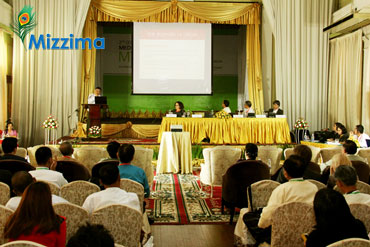It is a new dawn for media in Myanmar—censorship has been lifted; 10 daily newspapers are now being printed, with another 14 on the way; and, reporters are free to write what they please. But the rush to this liberalized market has brought with it a fresh batch of problems for journalists, editors and media company owners.

Lack of finances, human resources, equipment and facilities are key issues that were raised during a debate on the business of media at the second annual Conference on Media Development in Yangon on Tuesday.
“We have the opportunity, we are going to a free press environment,” said Ko Ko, chairman of Yangon Media Group. However, he warned that 70 percent of Myanmar's media face a lack of financing: “most of them are something like a family business: they don’t have a commercial business model”.
While the market is being flooded with print publications for the first time in more than 50 years following decades of military censorship, the audience for media remains small—Myanmar's population is an estimated 60 million, but readership is at less than one percent of that.
“It is a really exciting time, especially for private media,” said Soe Myint, the editor-in-chief of Mizzima. “Now, the largest risk is not political, it's economic.”
Distribution and circulation systems remain traditional, and, with poor infrastructure, many printed publications fail to reach the 75 percent rural population of the country. Competition for advertising and financing remains fierce.
“The capacity to manage [Myanmar’s media] growth may be lacking,” said Michelle Foster, a business media consultant. “The assumption that advertising will always pay the bills is not true.”
Finding staff to work at the numerous institutions sprouting up across the country is also an issue. Myanmar has no journalism school and many young, enthusiastic reporters, raised in a country without a free press, are being hired due to knowledge of English and a basic skill set. They are arriving in newsrooms with no proper management or training systems in place.
"Well-trained journalists are vital to a democracy, but they fail when they don't have a platform or a paycheck,” said Foster, who emphasized capacity building and sustainability within media companies.
The ability to work across media platforms and prepare for the competition of mobile communications within the market must also be addressed, as the government makes moves to increase mobile phone penetration from five percent to 50 percent within three years.
“We are still in the early stage. We need to learn a lot. But we need to understand, that we would not have been here two or three years ago,” said Thet Win, general manager of Shwe Than Lwin, the company behind SkyNet, Myanmar's biggest private TV station, acknowledging that local media “still has a long way to go.”



